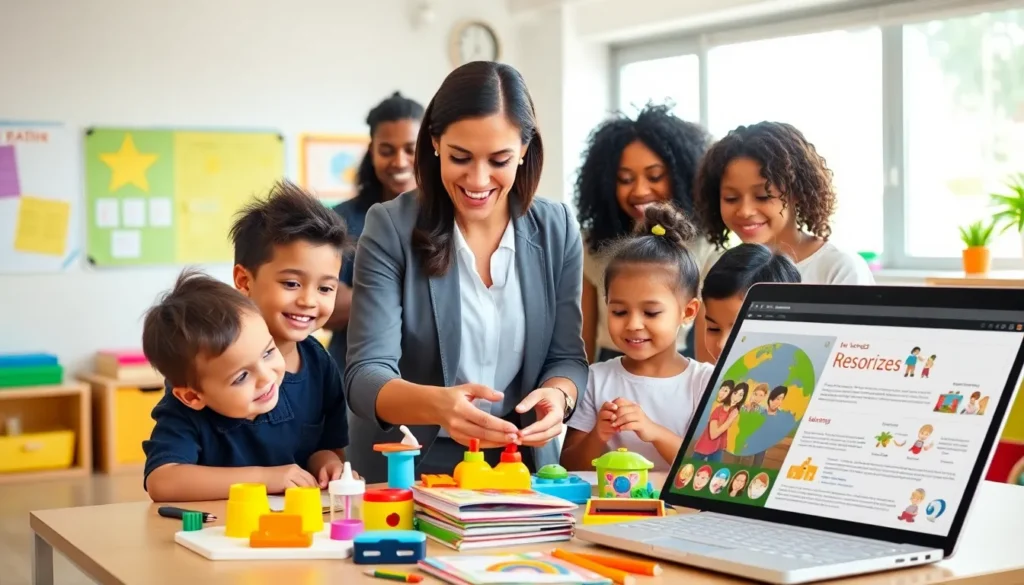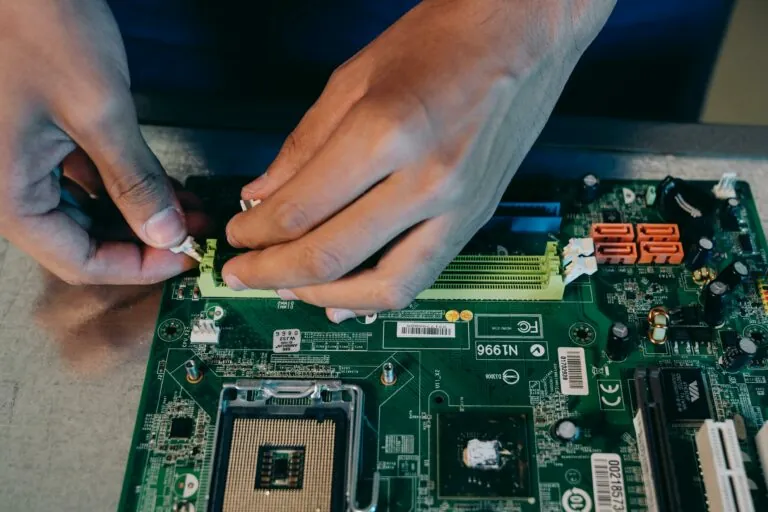Ever wondered what you can do with a child development degree? Spoiler alert: it’s not just about playing with blocks and reading picture books. This degree opens up a world of opportunities where passion meets career. Whether you want to shape young minds or jump into the world of health services, there’s a path for you. Get ready to discover how this degree can lead to fulfilling careers while occasionally making you the coolest adult in the room.
Table of Contents
ToggleUnderstanding Child Development Degrees

A child development degree focuses on the psychological, emotional, and biological growth of children. Students investigate into subjects like developmental psychology, sociology, and education theory. This degree aims to provide a comprehensive understanding of how children grow, learn, and interact within their environments.
Think of it as a blueprint, equipping graduates with the knowledge to foster healthy development in various settings. From early childhood education to social services, graduates are prepared to make significant contributions in their fields.
Career Opportunities in Child Development
The career opportunities available to child development graduates are vast and rewarding. There’s something for everyone, whether one embraces working directly with children or prefers behind-the-scenes roles.
Top Sectors for Child Development Graduates
Graduates often find positions in key sectors such as education, healthcare, and non-profit organizations. They may work in schools, preschools, and community programs, creating impactful learning experiences. Also, roles in policy advocacy and organizational management allow these professionals to influence child welfare on a larger scale.
Roles in Education and Academia
In education, they can become teachers, administrators, or curriculum developers. In academia, there’s the potential for research positions or faculty roles, contributing to the next wave of child development knowledge. This blend of practical and theoretical understanding ensures that graduates can support children effectively and innovatively.
Positions in Health and Social Services
Child development graduates are also in demand in health and social services. They can work in various roles aiding children and families in need. Possessing a deep understanding of childhood development equips them to assess and support emotional and developmental challenges.
Social workers, child life specialists, and counselors are just a few positions that tap into their skill set. They champion children’s well-being and provide the needed resources to navigate difficult situations.
Skills Acquired With a Child Development Degree
Graduates gain a wealth of skills that are applicable across many professions. Critical thinking, observation, and communication are central to effectively interacting with children and adults alike. Navigating diverse perspectives enhances their understanding of child psychology, making them adaptable in various environments.
Pursuing Further Education and Specialization
Many graduates choose to specialize, diving deeper into areas such as special education or pediatric health. Further education, like a master’s or certification, can elevate their expertise and improve job prospects. Specialization can open doors in niche markets of child development, increasing their impact.
Certifications and Licenses
Acquiring certifications like CPR, First Aid, or specialized credentials in early childhood education can also give graduates an edge. These nurtured skills not only boost confidence but ensure that they are fully prepared for whatever challenges the workforce may present.
Future Trends in Child Development Careers
Looking forward, the landscape for child development careers is expanding, shaped by technological advancements and evolving social needs. With more emphasis on mental health, child development professionals are increasingly playing roles in healthcare settings, addressing emotional well-being alongside physical health.
Also, online education opportunities are growing, creating new avenues for child development educators to reach wider audiences. This trend suggests a future where flexibility in teaching methods and training approaches will be fundamental. Keeping up with these changes ensures that graduates remain valuable assets in any career path they choose.



